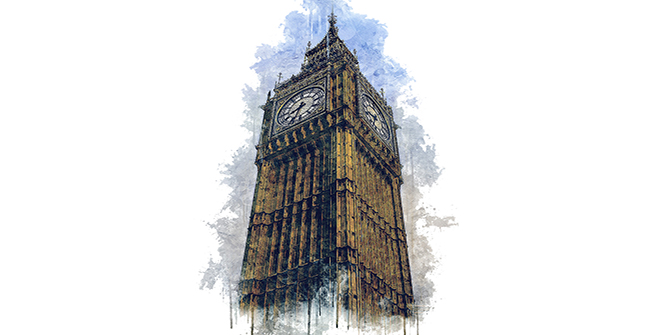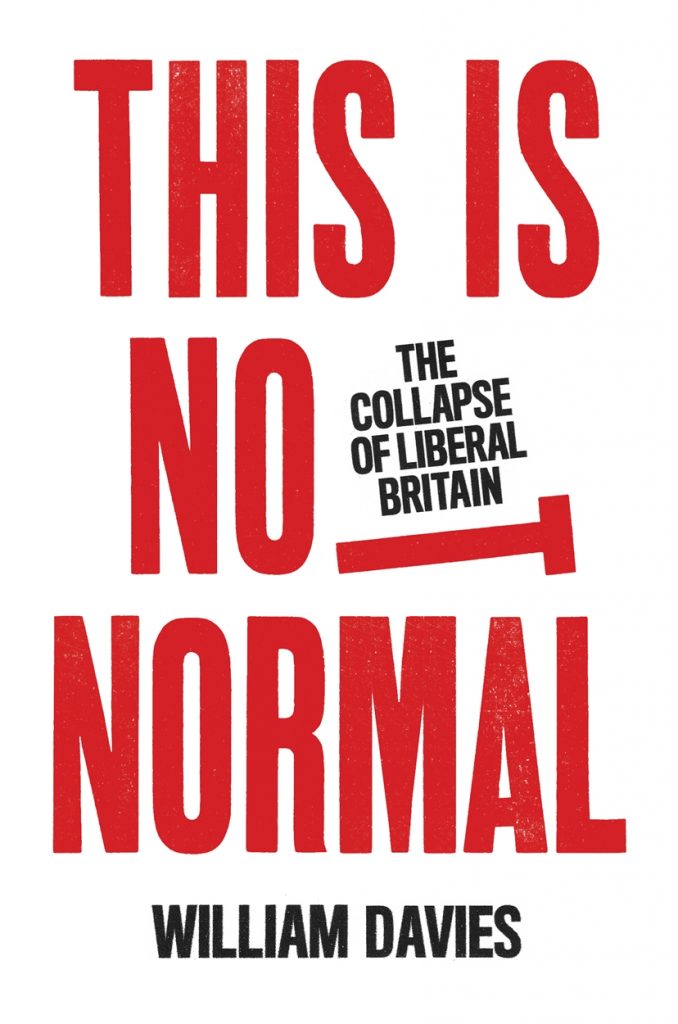The Conservative Party is grappling with its identity in the run up to the 2024 elections. The ideological imprint of the likes of Liz Truss, who spoke at the US Conservative Political Action Conference, seems to be abandoning the historical roots of the Conservative Party and moving towards a more Trumpian iteration. But, argues Emily Jones, this would not be the first time the Party has aligned itself ideologically with its American counterpart.
The recent surge in new Conservative groupings—Popular Conservatives, New Conservatives, National Conservatives, and so on—is frequently read as a sign of Conservatism in an identity crisis. To many observers it is unclear what Conservatism is in 2024. To some it can appear as though the Conservative party has abandoned conservative values altogether, in favour of a radical politics, upending the constitutional status quo with projects such as Brexit. Indeed, the recent frenzy of events and conferences is evidence that the party itself is trying to get to grips with its ideological identity, laying claim to all sorts of historical and intellectual predecessors and principles. But the attempt to pin down the essence of conservative ideology and compare it and contrast it with today’s Conservative party is a fool’s game. A loose collection of guiding principles is one thing, but these are historically contingent: Disraeli’s tripartite definition of ‘Church, Crown, and Empire’ is far removed from today’s ‘freedom’, ‘individual choice’, and ‘equality of opportunity’.
What is taking place today within the Conservative Party is incredibly reminiscent of the convulsions in the Conservative and Unionist Party a century ago, when new domestic and international conditions reoriented politics and ideas around entirely new problems. The result, eventually, was the permanent reconstruction and reorientation of the two-party system. Then, as now, a vast number of intra-party ‘ginger’ groups formed both before and after the landslide General Election defeat of 1906: protectionists, imperialists, free marketeers, suffragists, constitutional die-hards, social reformers. They all sought to light a fire and provide a guiding vision that would be stimulating and attractive, intellectually and electorally, to the Party faithful as well as to an increasingly democratic electorate.
At the PopCon launch we heard an unusual selection of quotations from Thatcher, Ronald Reagan, George Canning, Tony Benn, Louis XVI, and Jaws.
Back then, central to the reconstruction of Conservative identity was the claiming (and manipulation) of historical ancestors to provide guidance and legitimacy for modern times and novel proposals. Was it necessary to go ‘Back to Burke’ (who by 1914 had been canonised in familiar form as the founder of modern Conservatism) and, by implication, first principles? Or could a more recent guide—Benjamin Disraeli in his mythologised guise as a great Tory social reformer—prove more relevant? This kind of activity has been a regular and repeated feature of Conservative thought, politics, and commentary ever since. Most recently, the 2022 Conservative leadership contest played out an implicit fight for the legacy of Margaret Thatcher: Liz Truss copied her outfits, while Rishi Sunak borrowed her early deflationary economic policies.
To bring things back to the present, what conservative tradition do the Popular Conservatives situate themselves in? At the PopCon launch we heard an unusual selection of quotations from Thatcher, Ronald Reagan, George Canning, Tony Benn, Louis XVI, and Jaws. This ad-hoc smorgasbord, and how it develops, is something to watch. Even Thatcher and her speech writers assiduously cultivated a rhetorical and intellectual narrative that reached across the ‘Tory tradition’ as it was then understood, both before and during her leadership: Disraeli, Burke, Salisbury, Peel. Her references to Disraeli, for example, were far more considered than those of, say, Milton Freedman.
More specifically, in his first address to the Conservative Party conference as Prime Minister in 1957, Harold Macmillan quoted Disraeli to insist: “We must be conservative to conserve all that is good and radical to uproot all that is bad.” In the same vein, from the early 1980s Thatcher used Burke and Disraeli to argue that her policies represented continuity with older Conservative traditions. On continuity, Burke was invoked to outline how her Government was continuing to work towards lowering inflation and taxes and developing a robust policy towards the EEC. Disraeli, as the other side of the coin, was cited along the same lines as Macmillan to explain how she must also pursue necessary but ‘Conservative’ adaptive change in taking on the trade unions. ‘It was Disraeli,’ she stated in a speech of 1985, ‘who talked about “One Nation”. We, his successors are bringing it about.’
These new iterations of the party seem less dedicated to historical figures of the movement.
Situating oneself within a broader Conservative (and often mythologised) tradition has, historically, been a central means by which one’s ‘true conservatism’ can be legitimately and convincingly stated, even if how this is defined evolves over time. But the general consensus seems to be that something has changed. These new iterations of the party seem less dedicated to historical figures of the movement. Last September, the recently established magazine The Critic advised the New Conservatives to read their Disraeli. And when it comes to Popular Conservatism, it has been suggested that the new wine filling the old bottles is of American—Trumpian—extraction, aligned with organisations such as the Heritage Foundation and the Conservative Political Action Conference (CPAC), or an ahistorical demand for the restoration of ‘freedom’. Scheduled alongside Nigel Farage and Steve Bannon, Truss has been at CPAC—the biggest annual gathering of Conservatives in the US—this week, aligning her fight to that of the far-right attacks on the ‘deep state’. The admiration is shared, and the immediate reflex is historical: the panel moderator KT McFarland, Trump’s former deputy national security adviser, introduced Truss by exclaiming, ‘wow, Margaret Thatcher is back!’
Beyond how these new groups answer the question ‘who are we?’, there is the tandem question of who we are not. This was not a problem Thatcher had, in an era of Cold War politics. Brexit provided a sticking plaster, as did ‘Corbynism’. But a new bogeyman halting the progress of Conservative thought and politics has been identified by the Popular Conservatives: ‘leftism’, ‘wokery’, and the ‘blob’—which includes not just the Civil Service but domestic and international institutions like universities, the Supreme Court, the ECHR, COP, the Bank of England, and, of course, quangos. Here, Jacob Rees-Mogg quotes Stanley Baldwin: “power without responsibility – the prerogative of the harlot throughout the ages”. And perhaps there is something in the critique of the ‘Blairite constitutional settlement’ reminiscent of older Tory attacks on the Whig settlement of 1688 and the 1832 Reform Act as not truly ‘popular’ or, as they might say, democratically accountable. But their broader attack on national institutions per se (the British ‘deep state’) is different, as Mark Littlewood frankly acknowledged in his closing remarks.
The extent to which modern Conservatives feel the need to situate themselves alongside older traditions, and the depth and breadth to which this is being done, tells us a great deal about how Conservative ideas and self-presentation has changed and is changing in the twenty-first century. It suggests that conservatism as both an idea (small ‘c’) and as a political tradition (big ‘C’) should more properly be seen, to borrow the words of the late, great historian Jose Harris writing on civil society, as part of the ongoing subject matter of history, rather than as a fixed category of analysis. There have been moments in the past where Anglo-American thinkers and politicians together shaped a more portable, transatlantic version of Conservative thought and politics for years to come: Russell Kirk and T.S. Eliot, Thatcher and Reagan. Nixon once described himself as a ‘Disraelian conservative’. This could be another such moment of transatlantic alliance, but right now it’s too soon to tell.
All articles posted on this blog give the views of the author(s), and not the position of LSE British Politics and Policy, nor of the London School of Economics and Political Science.
Image credit: ComposedPix on Shutterstock







